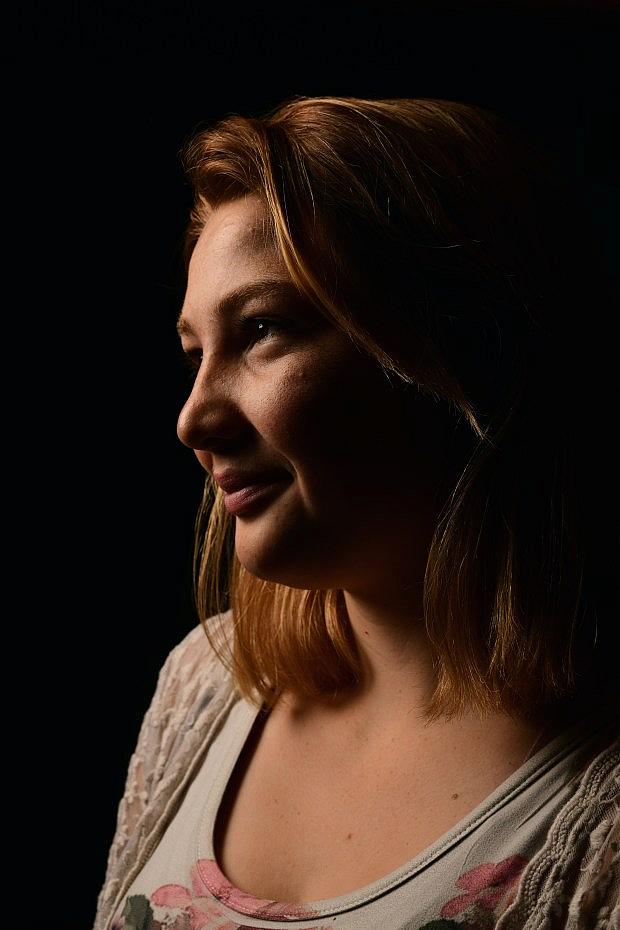Ice
This story was produced as part of a larger project led by Jessica Seaman, a participant in the 2019 National Fellowship.
Other stories in this series include:
The Denver Post launches project to investigate teen suicides in Colorado — and we need your help

Dulce Trujillo, 18, of Salida on Jan. 18, 2020.
By Dulce Trujillo
Editor’s note: This essay was awarded an honorable mention in The Denver Post’s teen essay contest as part of an ongoing Crisis Point project on youth suicide in Colorado. We believe it’s important to hear survivors’ stories so we can better understand this sensitive issue. This essay contains information about a suicide attempt that may be triggering to readers.
I can’t explain how I felt. I was the second choice at best in every friendship I had. My uncle just lost a battle to cancer. My older brother who was once my best friend dropped out of high school his sophomore year and ran away from home because he was addicted to drugs. My parents were constantly arguing about what renovations were next on our new house in our new town.
I can easily explain the circumstances of my pain, but the words that would justly describe my agony do not exist. I didn’t want to die; I just needed to do something, because no matter how hard I tried I couldn’t make my friends like me. I couldn’t stop grieving my uncle, I couldn’t make my brother recover, and I couldn’t take away my parents’ financial worry. I found myself backed into a corner of empty shadows; the only escape from my prison was suicide.
Depression is like ice. When you hold it close for too long you get numb. I wasn’t sad, or happy, or angry; I kind of just was. I had been so sad for so long that I forgot how to feel anything else. I forgot what depression was because it became indistinguishable from everything else in my life. In that time I lived and breathed loneliness and eventually the ice spread and changed me like a fossil, hardening over time.
I remember deciding I was going to kill myself at school that day. My new friends were just as (expletive) as my old friends and I remember thinking, since I couldn’t find belonging after moving, I would never find it. And since I would never find belonging the grief I felt for my uncle would never lessen, and my brother would never want to be my brother again, and my parents would never stop fighting, and I would never be able to feel. This spiral of thoughts wrapped around my entire being and tightened every waking second. I couldn’t breathe and time was running out.
After school, a kid I barely knew asked me if I was OK. He looked genuinely concerned and I still wonder if he knew. In that moment I made a choice. I was terrified to continue to exist as an icy stone every day; that fear overcame me and without thinking, I denied his offer of salvation. “Yeah, I’m OK,” I remember feeling guilty about lying to him because the next day he would hear about what happened. How would he feel after the news? I wonder if he would even remember asking me if I was OK. I wonder if he remembers now.
That night when I was invited to go to the hot springs with my family I made another choice: I stayed home alone. I honestly had no idea what I was doing. Eighth graders shouldn’t know how to kill themselves and that was true for me. Despite that fact, I attempted to take my life.
It felt as if my mind was a violent blizzard, nothing but cold and fear. Nevertheless, I found the courage to tell my parents what I did. Their anger cut me deeper than any knife I ever used on myself. My physical and emotional recovery was the most irritating and repulsive experience I’ve ever had. Every time someone said anything about my attempt was a punch in the gut.
I’m glad that I’m alive. With grueling effort, I found ways to heal and to grow into someone much stronger than I was. Now I live to be a light. An inferno of love and charity toward the world so that maybe someday I might melt the ice that seems to be spreading and hardening more rapidly every day. I live to beckon people out of their shadowy corners towards my warmth, and their healing. I hope you live like this, too, because we need it now more than ever.
Dulce Trujillo is a senior at Salida’s Horizons Exploratory Academy.
Health reporter Jessica Seaman is investigating how Colorado’s mental health systems address youth suicide. To read more essay contest entries and learn more about our investigation, visit youthsuicide.denverpost.com.
[This article was originally published by the Denver Post.]

